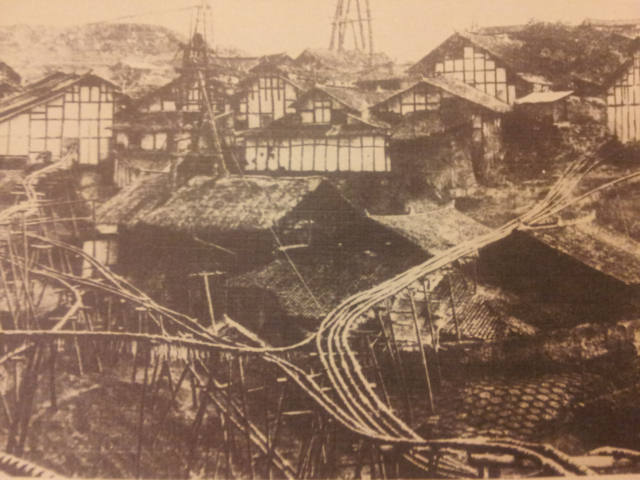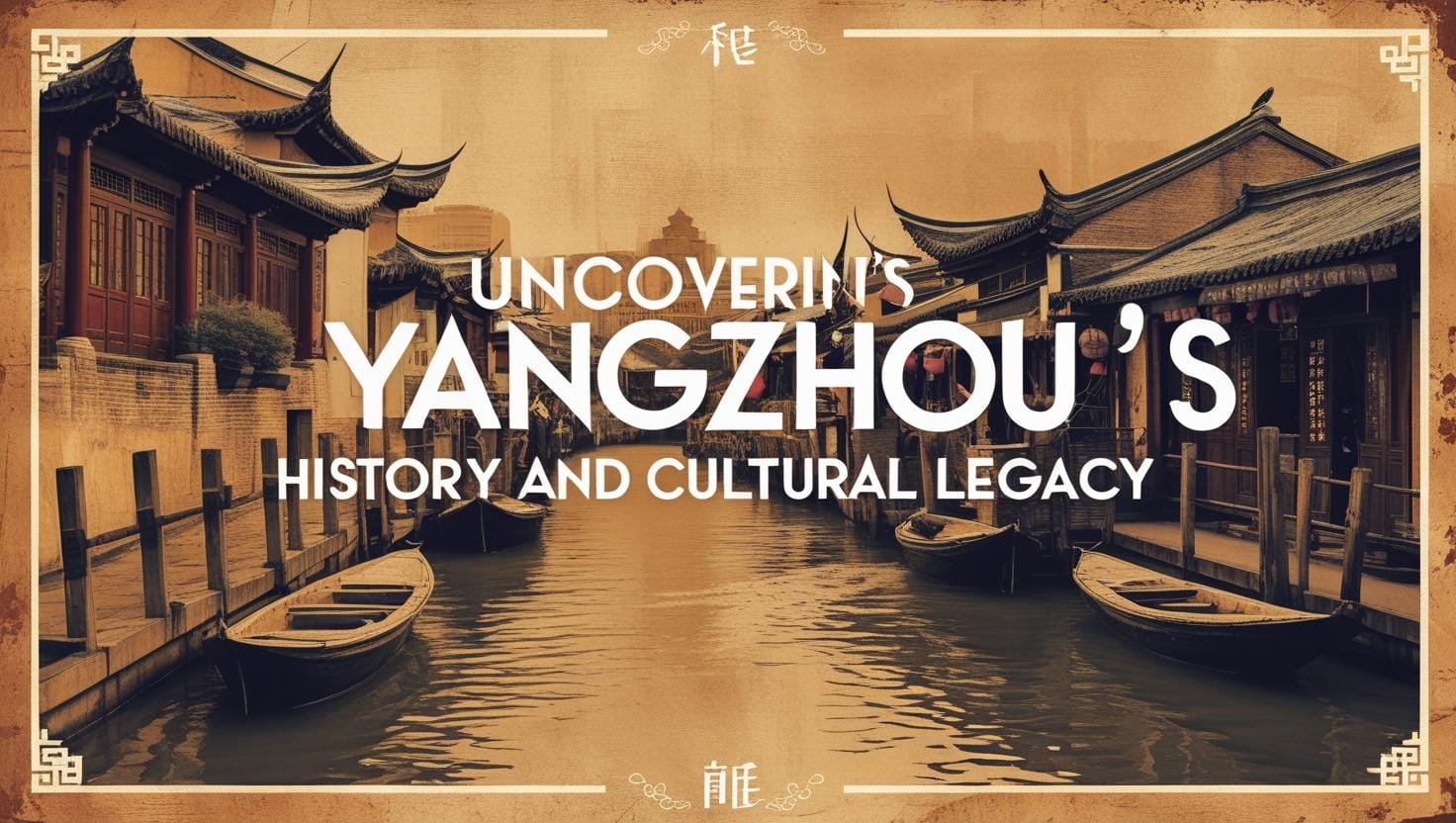Uncovering Yangzhou’s Salt Merchant History and Cultural Legacy
Welcome to Jusha Travel, your go-to source for exploring the hidden gems of China! If you’re fascinated by Yangzhou Salt Merchant History, you’re in for a treat. This ancient city, nestled along the Yangtze River, was once a powerhouse of wealth and culture, thanks to its dominant role in the salt trade. From opulent mansions to artistic masterpieces, Yangzhou’s legacy offers a captivating glimpse into China merchant culture and its enduring influence. In this post, we’ll dive into Yangzhou historical sites, highlight cultural attractions in Yangzhou, and provide tips for your Yangzhou travel guide adventure, all while tying into broader China history travel themes. Whether you’re a history buff or a curious traveler, Yangzhou promises stories that bring China’s past to life.

The Rise of Yangzhou’s Salt Merchants: A Tale of Monopoly and Wealth
Yangzhou’s ascent as a commercial giant began during the Ming (1368–1644) and Qing (1644–1911/12) dynasties, when it became the epicenter of the salt trade. As the headquarters of the Lianghuai Salt Administration, the city controlled the distribution of salt to much of eastern China, creating immense fortunes for its merchants. These elite figures secured an official monopoly by paying hefty taxes and fees, turning Yangzhou Salt Merchant History into a story of extravagant wealth and strategic alliances. For instance, some merchants amassed such riches that they commissioned items like solid gold chamber pots to flaunt their status—a perfect example of conspicuous excess in China merchant culture.
This era wasn’t just about money; it was a delicate dance with imperial power. Merchants financed local infrastructure, bribed officials, and even built elaborate pavilions overnight for imperial visits to maintain favor. If you’re planning a trip, visiting sites like the historic salt warehouses can provide a tangible connection to this past. As part of your Yangzhou travel guide, consider timing your visit during the spring or fall for pleasant weather, and don’t miss the chance to explore how this trade influenced daily life. For more on Yangzhou’s role in China’s economic history, check out this insightful resource: [Salt in Chinese History](https://en.wikipedia.org/wiki/Salt_in_Chinese_history). It’s a reminder of how salt, a simple commodity, shaped an empire and offers practical tips for understanding Yangzhou historical sites today.

Salt Merchants as Patrons of the Arts: Nurturing Yangzhou’s Cultural Golden Age
Beyond their commercial prowess, Yangzhou’s salt merchants were visionary patrons who transformed the city into a cultural hub. From the 16th to 18th centuries, their wealth fueled a flourishing arts scene, making cultural attractions in Yangzhou some of the most enchanting in China. These merchants sponsored artists, poets, and musicians, leading to the rise of the “Eight Eccentrics of Yangzhou,” a group of innovative painters whose bold styles challenged traditional norms and influenced modern Chinese art. Imagine grand banquets in opulent residences, where poetry readings and musical performances were commonplace, blending commerce with creativity.
This patronage wasn’t just for show; it helped merchants build social networks and demonstrate sophistication. Today, you can experience this legacy at sites like the Yangzhou Museum, which houses exquisite artifacts from this period. If you’re a culture enthusiast, pair your visit with a traditional tea house experience—many are located in restored merchant homes, offering a taste of the era’s lavish lifestyle. For deeper insights into how these cultural exchanges shaped Yangzhou, explore Yangzhou | Ancient Chinese City & Cultural Hub. As you delve into China history travel, remember that Yangzhou’s artistic heritage provides a refreshing contrast to more touristy spots like Beijing, with fewer crowds and more authentic vibes.
Fun fact: Yangzhou’s cuisine, influenced by merchant banquets, features delicate dishes like braised duck and Huaiyang-style dim sum. These meals aren’t just food; they’re a window into China merchant culture, emphasizing harmony and refinement. When traveling, use apps like WeChat for easy reservations at these spots, showcasing how technology enhances your cultural immersion.

Architectural Marvels: Exploring Yangzhou’s Historic Mansions and Sites
No discussion of Yangzhou Salt Merchant History is complete without highlighting the stunning architectural legacy left behind. Hidden behind high walls and lush gardens, the merchants’ mansions are architectural wonders that blend functionality with artistry. These complexes, often spanning hundreds of rooms, feature intricate woodwork, serene courtyards, and ceremonial halls that once hosted elaborate gatherings. Visiting these Yangzhou historical sites feels like stepping into a bygone era, where wealth met elegance.
For instance, the Ge Garden and the He Yuan (Crane Garden) are must-seey spots that have been restored into museums and restaurants. Wander through ornate interiors adorned with calligraphy and paintings, and you’ll gain insight into how merchants used architecture to display their status. As part of your Yangzhou travel guide, I recommend joining a guided tour—these often include stories of merchant families and their ties to imperial courts,(square) making your visit morormányinging. If you’re interested in the social rituals of these homes, read about their legacy in [Legacy of the Salt Merchants](https://www.chinadaily.com.cn/food/2013-04/07/content supernova_16364345.htm), which details how these spaces influenced modern Chinese lifestyle.
Culturally sensitive tip: When exploring these sites, respect local customs by dressing modestly and avoiding peak hours to appreciate the tranquility. Yangzhou’s architecture also ties into broader China history travel, illustrating how merchant culture adapted to political changes. Plus, many mansions now serve as venues for cultural events, like tea ceremonies or performances, blending tradition with contemporary appeal.

The Decline and Enduring Influence: Yangzhou’s Lasting Cultural Impact
As the Qing dynasty waned in the late 19th century, so did the power of Yangzhou’s salt merchants, thanks to shifting policies, new trade routes, and modernization. The state monopoly crumbled, leading to economic shifts that marked the end of an era. Yet, the cultural attractions in Yangzhou forged during this time continue to thrive, from artistic traditions to culinary innovations that echo in today’s vibrant scene.
Families like the Cao clan, immortalized in the classic novel Dream of the Red Chamber, exemplify the vulnerability of this wealth—rising to prominence through salt trade connections but falling with imperial disfavor. Despite the decline, Yangzhou’s legacy endures in its museums, gardens, and festivals, making it、文化 prime destination for China history travel. Modern visitors can still savor banquet-style cuisines in restored mansions, a direct nod to merchant extravagance. For a broader perspective on this evolution, dive into [China Cultural Analysis: Cuisine & History](https://www.eastwestnewsservice.com/yangzhou-a-perfect-portal-into-chinas-history-culture-and-cuisine/)., which explores how Yangzhou’s past influences its present.
Interesting fact: Yangzhou’s integration of technology in tourism, like virtual reality tours of historical sites, adds a fresh layer to exploring Yangzhou historical sites. This blend of old and new aligns perfectly with Jusha Travel’s mission to inspire modern adventurers. When planning your trip, use reliable apps for navigation and booking, ensuring a seamless experience.
In conclusion, uncovering Yangzhou Salt Merchant History reveals a fascinating chapter of China merchant culture, filled with lessons on wealth, art, and resilience. From strolling through majestic gardens to savoring local delicacies, Yangzhou offers an unforgettable journey for travelers seeking authentic cultural attractions in Yangzhou. Here at jusha.travel, we love sharing tips to make your China journey unforgettable, so whether you’re crafting your Yangzhou travel guide or exploring other China history travel spots, we’ve got you covered.
What are your thoughts on Yangzhou’s hidden treasures? Share your experiences in the comments below, visit jusha.train for more inspiring articles, or check out our related posts on China’s cultural hotspots. Safe travels!

